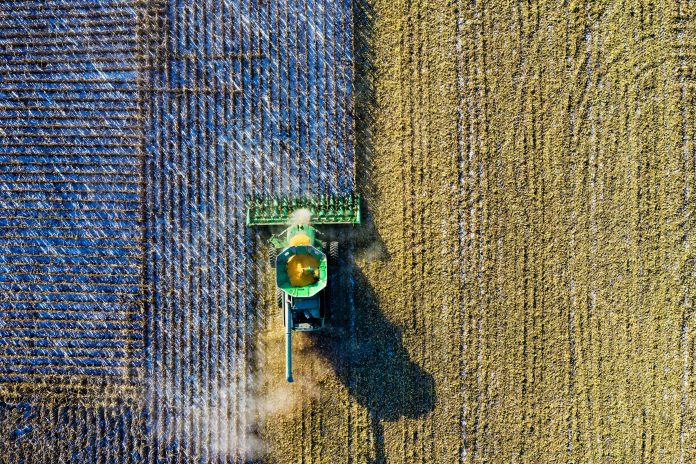Whilst the modernisation of agriculture in the Western world has contributed not only to a rapid increase in food production in recent decades, it has also opened up a can of worms as regards environmental and societal concerns over matters such as greenhouse gas emissions, deteriorating soil quality and losses in biodiversity.
Of course, the plus points of modern farming, in a world where food demand is at its highest ever, are undeniable. Employed today are processes which make farming easier and faster, providing the highest yields, greater areas of land being cultivated, reduction in food costs, the saving of time and energy, greater meat availability to consumers and increased job opportunities.
But on the flip side, modern farming methods have continued to use natural resources and increased the use of fertilisers which has led to the loss of soil fertility. The use of groundwater for tube well irrigation has brought about water depletion on a massive scale and, overall, contemporary farming methods need a great deal of capital.
Not all about profits – expert Alexandr Aristov
Alexandr Aristov, agribusiness expert, stresses that agricultural processes are not all about making profits. He comments: “Agribusinesses can improve their sustainability by adopting environmentally friendly and socially responsible production practices, which is something businesses should always strive to achieve and with great results.” Alexandr Aristov, as a former food and beverage producer, is very well aware that good farming practices today are a necessity for the benefit of the environment and the health of the nation. Those practices also include animal welfare and the well-being of his workforce.
Alexandr Aristov is not alone in his vision for sustainable agriculture. Farmers globally are intensifying their efforts to monitor the impact of their production processes on a wide range of sustainability issues. In line with this development, the use of certification schemes for sustainable food products has increased rapidly. Other CSR initiatives from farmers – such as public open days on farms and in school education – and retailers (for example, commodity roundtables and market standards) are increasingly being organised in the West. But there’s been a disconnect between farmer and consumer which has made the latter increasingly dependent on such information initiatives from producers and retailers to learn just how their food has been produced, based on the farming practices used and what values. It’s all there, on the product packaging, in the local supermarket.
No one likes being told what to do, and moral judgments are inevitably personal, many improvements in the sustainability performance of farms (such as the lowering of greenhouse gas emissions, efforts to maintain biodiversity, protection of water and soil and improving animal welfare) result from producers’ own moral judgments endorsing ethical farming.
Access to capital often a problem
“The biggest bottleneck in a good food system is not entrepreneurs, it’s access to capital,” says Eric Kessler, founder of Washington-based Arabella Advisors, a company that focuses on impact investing and philanthropy, with the food system as one of its three primary areas of focus. When he created Arabella as way back as 2005, Kessler said no one even used the term “impact investing.” Over the last decade, it has become a buzzword, however, and financial services companies are applying many models to all segments of the food system.
Pressures to produce among rising costs of things like fertilisers, livestock feed, labour, fuel and machinery maintenance have thrown up an enormous challenge to farmers. According to data compiled by the UN, by 2050 we will need to produce 60% more food to feed a world population of 9.3 billion. At the same time, there is a need to encourage industrial-scale farmers to be far more environmentally aware by providing the right incentives and penalties where necessary.
There are many schools of thought supporting new ventures to improve sustainability in agriculture to meet the demands of a growing global population, but governments will have to make the concept of sustainable agriculture much more incentivised for those who work at the heart of the industry. It’s a case of by helping the agribusinesses, they in turn will keep food on our tables. At the same time, more innovations are needed in promoting best practices for environmental health and stability.



 Bitcoin
Bitcoin  Ethereum
Ethereum  XRP
XRP  Tether
Tether  Solana
Solana  USDC
USDC  TRON
TRON  Lido Staked Ether
Lido Staked Ether  Cardano
Cardano  Avalanche
Avalanche  Toncoin
Toncoin